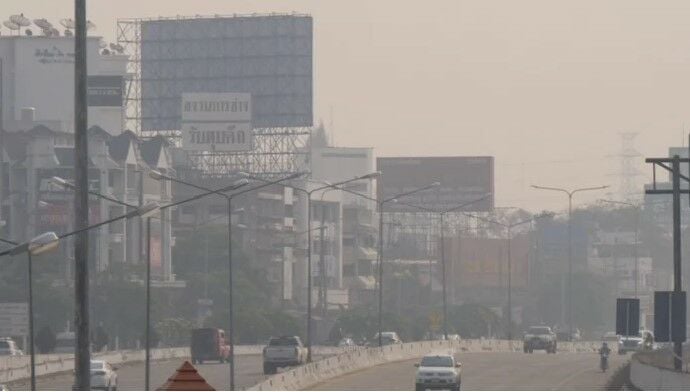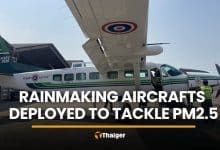Thailand’s interior minister unveils strategies to combat air pollution

The Secretary to Thailand’s Minister of the Interior, Traisulee Traisanakul, unveiled strategies to counteract forest fires, smog, and PM 2.5 smoke yesterday, December 6.
These policies came as an initiative from Deputy Prime Minister and Minister of the Interior Anutin Charnvirakul and were addressed to provincial governors.
Every year, during the cold and drought season, Thailand grapples with air pollution issues that surpass acceptable levels in several regions. The problem is particularly acute in 17 northern provinces and the Bangkok area.
This air pollution, ranging from wildfires and smog to PM2.5 smoke, stems from natural and human-induced factors. These causes result in the accumulation of dust particles in high concentrations, negatively affecting the environment and people’s health.
In response to this situation, Anutin instructed the Provincial Disaster Prevention and Mitigation Directorate to deploy technology to educate the public on air pollution problems comprehensively and effectively. He further urged relevant agencies possessing the necessary authority to enforce the law stringently on industrial factories, transportation, and other related sectors to regulate the air quality. These directives were shared by Traisulee to the public.
Instead of incinerating agricultural waste, the interior minister suggested promoting a campaign to exploit it in carbon-free, value-added processing. This could include using microorganisms for decomposition and ploughing, reported Pattaya News.
Moreover, the deputy prime minister emphasised the need to develop response plans for a variety of scenarios and continuously update information in high-risk areas. These include forests, agricultural regions, local communities, and resource information. He suggested that the relevant teams should be positioned in designated areas to patrol and prevent illicit burning.
Traisulee stated that proactive communication through various channels would serve as an excellent means to educate locals about ongoing air pollution issues. This would include the health hazards they pose, their environmental impact, and the penalties for flouting the law. The renewed focus on curbing air pollution is a step towards creating a healthier and more sustainable environment.
Latest Thailand News
Follow The Thaiger on Google News:


























